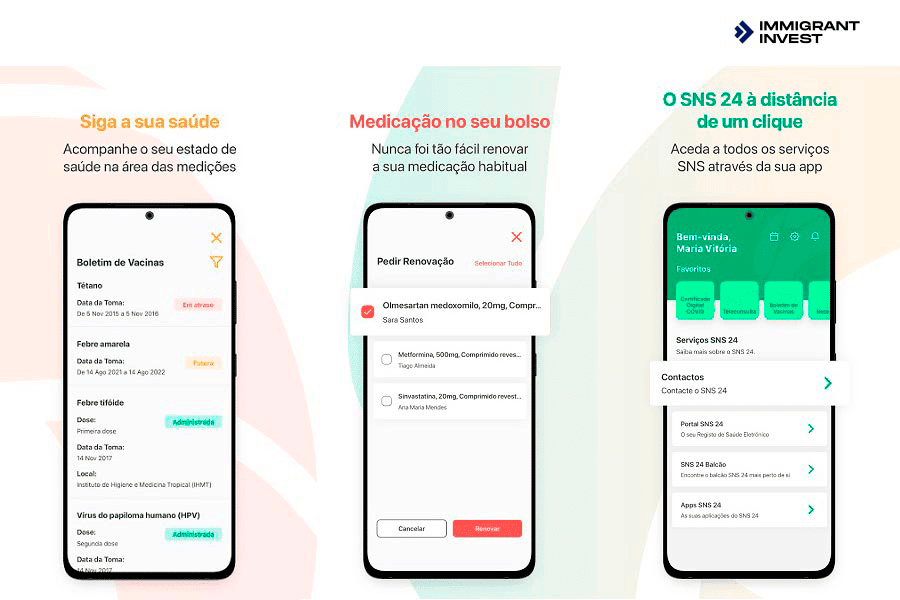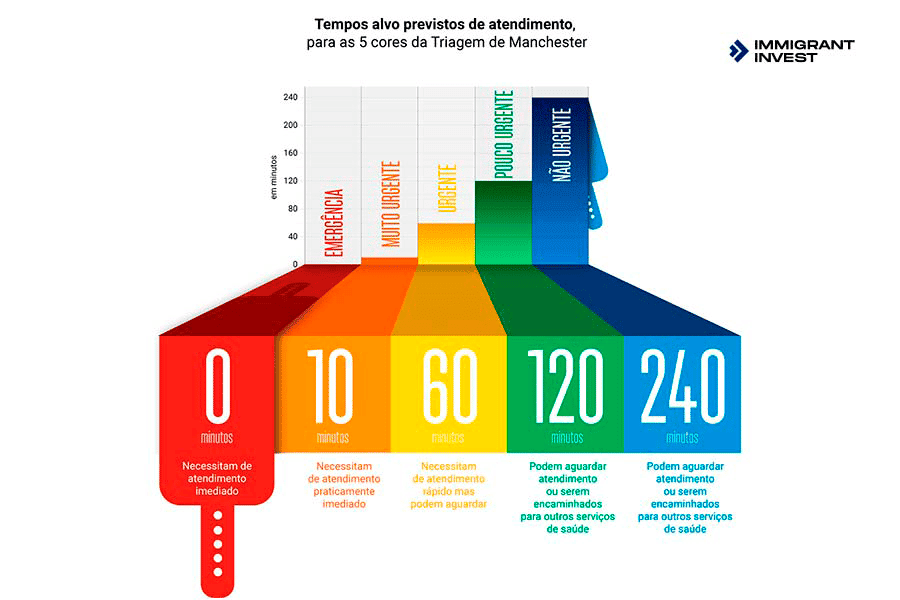

Summary
The Portugal healthcare system consists of 238 hospitals, 127 of which are private. Most hospitals provide services to patients in Portuguese and English.
Free treatment in Portugal is available to all residents who contribute to the Social Security Fund and pregnant women, children and pensioners.
Learn more about the features of Portuguese medicine and how to get quality treatment in the country.
Portugal healthcare system overview
50 years ago, Portuguese medicine was available only to wealthy people and employees of enterprises who had an analogue of modern medical insurance. Peasants and the poor received medical care only from volunteer doctors.
In 1979, the Portuguese Government began to carry out medical reforms and founded the National Health Service, SNS. Today Portugal’s healthcare system ranks 17th in the 2021 World Index of Healthcare Innovation. The total life expectancy for Portugal is 82.47 years in 2022, a 0.22% increase from 2021.
Public healthcare for Portuguese residents is administered through local and regional health centres and hospitals. Healthcare under the national healthcare system is free for children under 18 and people over 65.
Private healthcare options are also developed in Portugal. Often the same doctors consult both in a private clinic and in a public one. Many patients choose a paid consultation to get an appointment faster. Almost every specialist in the private system speaks English.
Family doctors are in demand in Portugal. The difference from general practitioners is that they undergo an additional four-year internship under the guidance of an experienced specialist.
The competence of family doctors includes accompanying patients from birth to death, including pregnancy management and carrying out preventive gynaecological examinations.
Portugal’s healthcare for expats is available if they have medical insurance coverage for their stay in the country. Foreigners with Portugal residence permits can get a social number and use public medical services for free.
In 2022, about 56,000 doctors work in Portugal, 27,000 of whom are general practitioners. They are engaged in diagnosing, preventing and treating the most common diseases.
All hospitals in Portugal can be divided into two types:
-
clinics — outpatient medical institutions where you can get advice from doctors of various specialities and take tests;
-
hospitals — medical institutions with a hospital, operating rooms, and research laboratories.
Depending on the Portuguese region and the severity of the disease, the queue for a consultation with specialists in public clinics can be from several days to a year.
Portugal is actively promoting digital services on the SNS website. Patients can get a video consultation or a prescription for medicine, make an appointment or request a health certificate.

Here is the SNS mobile application, which is available for download in Google Play and App Store
How much does Portugal medical care cost?
Medical care from the list of mandatory services is free for Portuguese residents who contribute to the Social Security Fund, as well as pregnant women, children and pensioners. Everyone pays for additional diagnostics.
The SNS mainly covers the cost of treatment in public hospitals , but patients pay fees for some services — Taxa Moderadora. For example, a consultation fee for a family doctor is about €5, and for a doctor of a narrow speciality — €8.
Exempted from fees are the following groups of patients:
-
pregnant women;
-
children under 18;
-
people with a disability of 60% or more;
-
dependents, the unemployed and people in difficult economic situations;
-
blood and organ donors;
-
firefighters and military;
-
refugees.
From July 1st, 2022, fees for medical services are collected only in emergency departments, but in practice, they may be asked to pay extra for consultations or tests in hospitals.
The cost of private medical care depends on the region. Usually, the larger the city, the more expensive consultations and treatment.
Average prices for treatment in private hospitals in Portugal
How to register in SNS
Access to the SNS service is available to citizens and residents of the country. The Portuguese, when contacting hospitals, provide a citizen card in which a medical number is registered — Número de Utente.
Residents of Portugal receive a medical number on their own or through an employer. To get a number, you must provide a residence permit or permanent residence card and an individual tax number, NIF.
You can get a medical number for free at any medical centre — Centro de Saúde. It is issued immediately for a consultation. You can choose a convenient centre on the state ePortugal portal.
Citizens of the European Union, the European Economic Community and Switzerland can apply to public hospitals in Portugal using the European Health Insurance Card, or EHIC.
Citizens of Andorra, Brazil, Cape Verde, and Morocco can also receive public medical assistance. The governments of these countries have entered into mutual agreements on health care with Portugal.

Young person showing European health card
Medical insurance in Portugal
State insurance is provided to all citizens and residents of the country. Contributions to the social security system of the population cover insurance costs in Portugal.
The insurance entitles the holder to seek medical care at any public hospital through the SNS service.
Private health insurance in Portugal. About 20% of the inhabitants of Portugal take out private insurance in addition to state insurance. It covers additional services.
Best private health insurance in Portugal costs range from several hundred to several thousand euros per year. As a rule, private health insurance covers only a certain amount of treatment. The patient bears the remaining treatment costs if the insurance sum is insufficient.
Medical insurance for tourists and non-residents in Portugal. Tourists buy a private health insurance policy with €30,000 coverage or pay for treatment on their own.
Those living and working in Portugal have two options. They can either pay to the social security system, which is incremental with income, or buy one of the private health insurance plans.
Medical emergency in Portugal
In Portugal, there are Medical Emergency Centers — Centros de Orientação de Doentes Urgentes, CODU. You can seek help by calling 112. Ambulances, fire trucks, and paramedic teams respond to calls.
When a patient is taken to the admissions department of the hospital, the staff determines the severity and assigns him a bracelet of a particular colour:
-
red — urgent resuscitation or surgery is required;
-
orange — help is needed as soon as possible;
-
yellow — the patient can wait one hour for the doctor;
-
green — the disease is not severe, and the patient can be referred to a day hospital or a family doctor;
-
blue — does not need urgent help.

The picture shows the Portuguese system for assessing the condition of patients who are taken to hospitals by ambulance
Pregnancy and childbirth in Portugal
Gynaecology departments operate in almost all clinics and hospitals in Portugal. Medical care for pregnant women is provided free of charge in public institutions.
Usually, a pregnant woman is registered with the clinic in her area unless the attending physician refers her to another hospital. The expectant mother can also choose a private clinic. To get a consultation with a gynaecologist, you need to get a referral from a general practitioner.
During the first visit, the gynaecologist gives the patient a pregnancy book — Boletim de Saúde da Grávida.
An expectant mother can enrol in prenatal classes, such as yoga or gymnastics. These classes usually must be paid.
Most pregnant women choose to give birth in hospitals. During and after childbirth, they can use the services of doulas, who help with the child and provide emotional support to mothers.

Portuguese doulas help women before, during and after childbirth. Their duties usually include not only medical care but also emotional support
Medical care for children in Portugal
Children’s health is one of the priorities in the Portuguese healthcare system, so treatment for children is free. Since 1992, the country has had a program to protect the health of children and youth. Paediatricians, family doctors and general practitioners provide medical care for children.
Children undergo medical examinations from birth, and all information about the child's health is kept in the medical record. Portugal has a national vaccination program under which children get mandatory vaccinations.
Portugal also has a system to help children under the age of 6 who lag in development — Sistema Nacional de Intervernção Precoce na Infáncia, SNIPI.
SNIPI units are open in all areas of Portugal and include the following specialists:
-
nurses;
-
social workers;
-
educators;
-
speech therapists;
-
physiotherapists.
If necessary, other specialists are also involved, for example, doctors of narrow specialities and nutritionists. Support is provided where the child spends time at home, a boarding school or kindergarten.
Children with certain physical or psychological disabilities, such as congenital heart defects, may be eligible for SNIPI. The entire list of diseases is published on the system's website.

Most private and public hospitals in Portugal have an emergency department for children under 17
Dentistry in Portugal
The services of Portuguese dentists are most often paid for. Free care can be used by patients who cannot pay for treatment: children, people with disabilities and pensioners. Subsidised dental services are also common in Portugal: a part of the costs is covered by the SNS service, and the patient pays the rest.
You can get subsidised care at public hospitals. The insurance company or the patient pays for appointments in private clinics. Some private clinics provide free care to patients with a Check Dentista, an electronic document issued by family doctors.
The Check Dentista is available for the following groups of patients:
-
children;
-
pregnant women;
-
pensioners receiving solidarity supplement, Complemento Solidário;
-
patients with HIV infection or suspected oral cancer.
Mental healthcare in Portugal
The National Mental Health Program aims to promote the integration of mental healthcare into the SNS, both in primary and long-term care. It focuses on mental health promotion, mental illness prevention, treatment, and rehabilitation.
Pediatric hospitals in Lisbon, Porto, and Coimbra have mental health centres for children and adolescents. Portugal created Children and Adolescents Community Mental Health Teams. Children's mental health care is provided by nursing, psychological, social, and rehabilitation support.
The therapist is the first point of contact, and you can access mental healthcare services through the SNS.
Depending on your situation, your doctor can:
-
prescribe medication;
-
refer you to counselling or a specialist;
-
for more severe conditions, refer you to an emergency or psychiatric unit;
-
refer you to a community-based program;
Psychiatrists in Portugal make medical diagnoses and treatment plans. They must be registered as members of the Ordem dos Médicos.

Psychologists in Portugal can perform in the context of mental and psychological health issues. Unlike psychiatrists, they can’t prescribe medication. Under the law, they must be registered in the Ordem dos Psicólogos Portugueses
Best hospitals in Portugal
Public hospitals in Portugal provide patients with emergency care, outpatient care, aftercare, care for pregnant women and children, psychiatric consultations and palliative care.
There are also specialised clinics in the country, such as dentistry, orthopaedics, and plastic surgery.
The best Portuguese hospitals are located in the capital and major regions of Porto and the Algarve. Such a conclusion can be drawn under the Ranking Web of World Hospitals. For convenience, we provide information about the clinics in the table.
Top 7 hospitals and private clinics in Portugal
Pharmacies in Portugal
Portuguese pharmacies — Farmacia — operate throughout the country. The opening hours vary depending on the locality. Usually, pharmacies open at 9 am local time and close at 9 pm. Emergency pharmacies are open 24/7.
Pharmacies dispense medicines both by prescription and without them. The list of drugs sold without a prescription is prescribed in the legislation. For example, it includes antihistamines and antivirals. Antibiotics can only be bought with a doctor's prescription.
Some medicines, dietary supplements and medical supplies, such as bandages, hydrogen peroxide, and diapers, can be bought in pharmacies, para pharmacies such as Wells, and designated departments of supermarkets. Non-prescription and cosmetic products can be ordered online.
How a residence permit can help to get medical care in Portugal
The Portugal residence permit or permanent residency allows you to quickly register with the National Health Service, SNS, which means access to medical services. Some insurance companies provide residents with special service rates.
You can get a Portugal residence permit in different ways: to study or work, through marriage with a citizen of the country, or for family reunification. But the fastest path is by investment.
Portugal issues a "golden visa" by investments in real estate, investment fund shares, culture and art, science, and local business. Also, you can transfer capital to a Portuguese bank or open a company in the country and create ten jobs.
Buying a property is the most requested option. Investors have the right to buy:
-
a new property worth at least €500,000;
-
A property worth at least €350,000, older than 30 years and for restoration.
The cost of real estate will be lower by 20% if you purchase a property in areas with low population density.
Immigrant Invest has its own Portuguese real estate database with pre-approved properties. Among them are proposals from regions with low population density and properties for renovation.
Immigrant Invest is a licensed agent for citizenship and residence by investment programs in the EU, the Caribbean, Asia, and the Middle East. Take advantage of our global 15-year expertise — schedule a meeting with our investment programs experts.

Will you obtain residence by investment in Portugal?
-
Master the residency process
-
Get expert tips and documents
-
Estimate costs accurately















